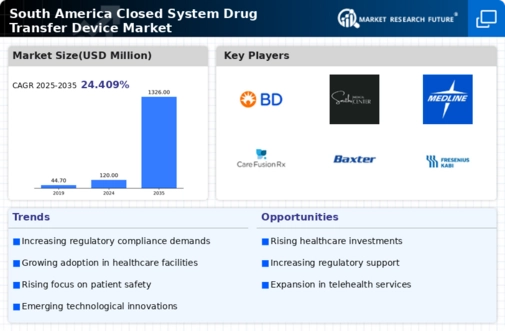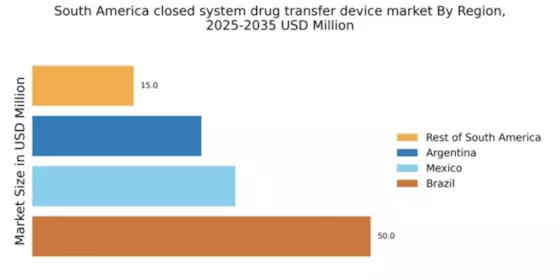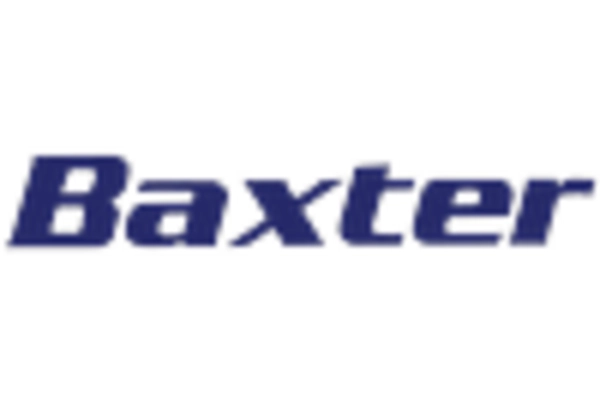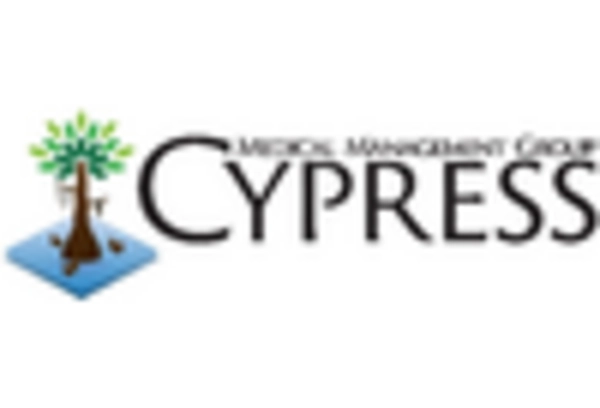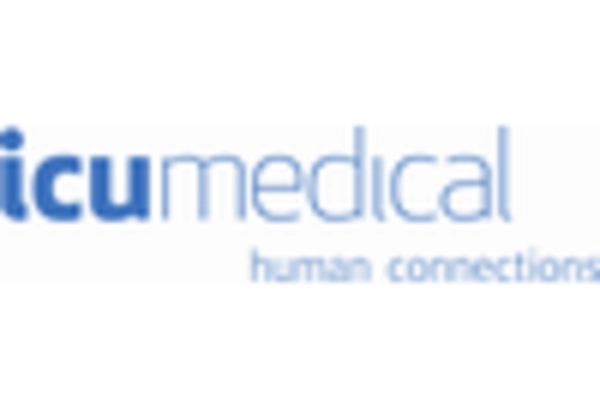Growing Healthcare Expenditure
The increasing healthcare expenditure in South America is a pivotal driver for the closed system-drug-transfer-device market. As countries in the region allocate more funds towards healthcare, the demand for advanced medical devices, including closed system-drug-transfer-devices, is likely to rise. In 2025, healthcare spending in South America is projected to reach approximately $500 billion, reflecting a growth rate of around 5% annually. This financial commitment to healthcare infrastructure enhances the accessibility and availability of innovative medical technologies, thereby fostering the growth of the closed system-drug-transfer-device market. Furthermore, as healthcare facilities expand and modernize, the integration of safety-focused devices becomes essential, indicating a robust market potential for closed system-drug-transfer-devices.
Rising Awareness of Drug Safety
The rising awareness of drug safety among healthcare providers and patients in South America is a crucial driver for the closed system-drug-transfer-device market. As stakeholders become more informed about the risks associated with drug exposure, there is a growing demand for devices that ensure safe drug handling and administration. Educational initiatives and training programs are increasingly emphasizing the importance of using closed system-drug-transfer-devices to minimize contamination and protect both patients and healthcare workers. This heightened awareness is likely to lead to a surge in market adoption, with projections indicating a potential market growth of 10% over the next few years as healthcare facilities strive to enhance safety standards.
Government Initiatives and Support
Government initiatives and support for healthcare innovation in South America are instrumental in driving the closed system-drug-transfer-device market. Various national health policies are being implemented to promote the adoption of advanced medical technologies, including closed system-drug-transfer-devices. These initiatives often include funding for research and development, as well as incentives for healthcare facilities to upgrade their equipment. As governments recognize the importance of improving healthcare delivery and patient safety, the closed system-drug-transfer-device market is likely to benefit from increased investment and support. This trend may result in a market growth rate of approximately 7% annually, as more healthcare providers adopt these essential safety devices.
Enhanced Focus on Occupational Safety
There is an enhanced focus on occupational safety within healthcare settings in South America, which serves as a significant driver for the closed system-drug-transfer-device market. Healthcare professionals are increasingly exposed to hazardous drugs, leading to a heightened awareness of the need for protective measures. Regulatory bodies and healthcare organizations are advocating for the implementation of safety devices to mitigate risks associated with drug handling. This trend is likely to propel the adoption of closed system-drug-transfer-devices, as they are designed to prevent contamination and protect healthcare workers. The market for these devices is projected to grow by approximately 8% annually as institutions prioritize safety protocols and invest in protective technologies.
Increasing Incidence of Chronic Diseases
The rising incidence of chronic diseases in South America significantly impacts the closed system-drug-transfer-device market. With conditions such as diabetes, cancer, and cardiovascular diseases becoming more prevalent, the need for safe and efficient drug delivery systems is paramount. Reports indicate that chronic diseases account for nearly 60% of all deaths in the region, necessitating the adoption of advanced medical technologies. Closed system-drug-transfer-devices offer a solution to minimize exposure to hazardous drugs, thereby enhancing patient safety. As healthcare providers seek to improve treatment outcomes for chronic disease patients, the demand for these devices is expected to escalate, driving growth in the closed system-drug-transfer-device market.


